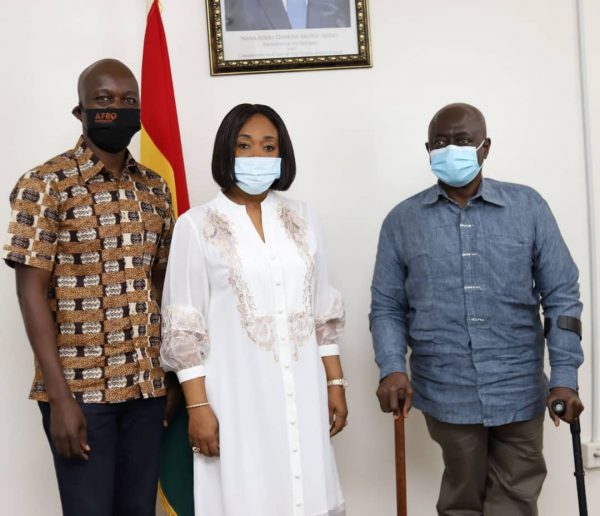The Minister for Foreign Affairs and Regional Integration, Shirley Ayorkor Botchwey, has hailed research institute, Afrobatometer for the high level of professionalism displayed in their work over the years.
Consequently, she has appealed to African leaders to make use of data gathered by Afrobarometer in policy formulation and implementation.
This is because data gathered by Afrobarometer is often “used outside, adding that such data needs to be used internally”.
According to Madam Shirley Ayorkor Botchwey, Afrobarometer “collects data that is non- partisan” which makes it a “real representation of views from the people”.
She said this when a delegation from Afrobarometer, led by the Chief Executive, Dr Joseph Asunka, and Board Chair, Prof Emmanuel Gyimah Boadi, paid a courtesy call on her at her office in Accra.
The Minister highlighted the crucial role played by Afrobarometer in solidifying Ghana’s credentials as the headquarters of democracy on the continent and expressed the ministry’s readiness to collaborate with it to promote peace and unity in Ghana and beyond.
The delegation from Afrobarometer commended the Minister for her role in Ghana’s election onto the UN Security Council and the hosting the Africa Continental Free Trade Area in Ghana.
About Afrobarometer
Afrobarometer is a non-partisan Pan-African research institution formed in 1999 through the merger of three independent survey research projects of co-founders, Dr. Michael Bratton, Dr. Robert Mattes and Dr. Emmanuel Gyimah-Boadi. Dr. Joseph Asunka is Chief Executive Officer of the organisation.
The organisation conducts repeated public attitude surveys on democracy, governance, the economy and society in 30 plus countries, mostly within Africa, with the aim of providing the public a voice in policymaking.
In 2019, Afrobarometer revised its structure with emphasis on partnership, capacity building and sustainability, following which it relaunched and registered as a non-profit organization headquartered in Accra. The institution is also run by a network of more than 35 African partner organisations under the leadership of the Centre for Democratic Development, Ghana (CDD-Ghana).
Other core partners include the Institute for Justice and Reconciliation (IJR) in Cape Town, the Institute for Development Studies (IDS) at the University of Nairobi, and the Institute for Empirical Research in Political Economy (IREEP) in Benin. National partners execute surveys in each country. The Michigan State University (MSU) and the University of Cape Town (UCT) serve as support units for the network.
Since its inception in 1999, Afrobarometer’s work in Ghana has cut across a wide array of socio-economic and cultural issues, including on unemployment, energy, same-sex relationships, water, corruption and education, among others.










